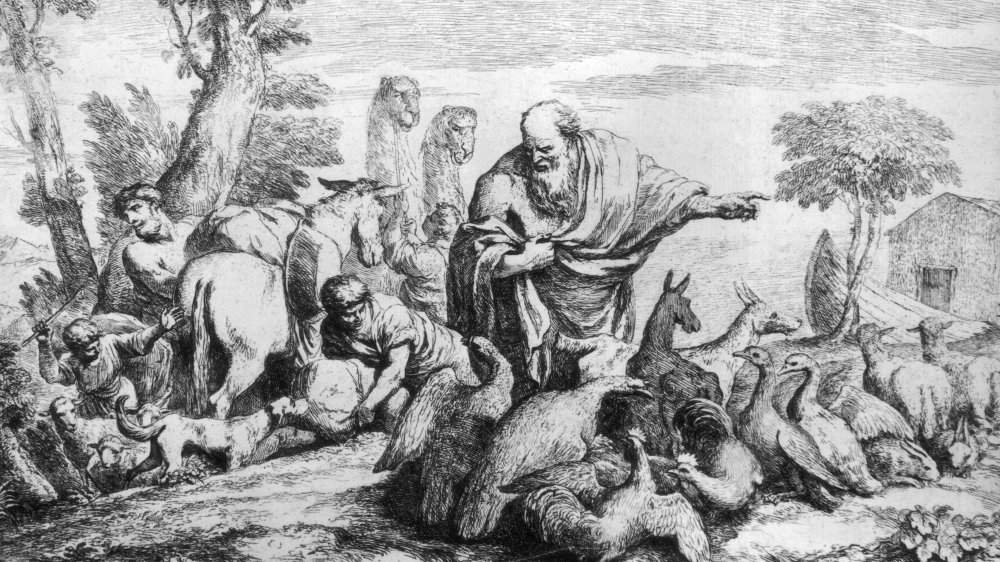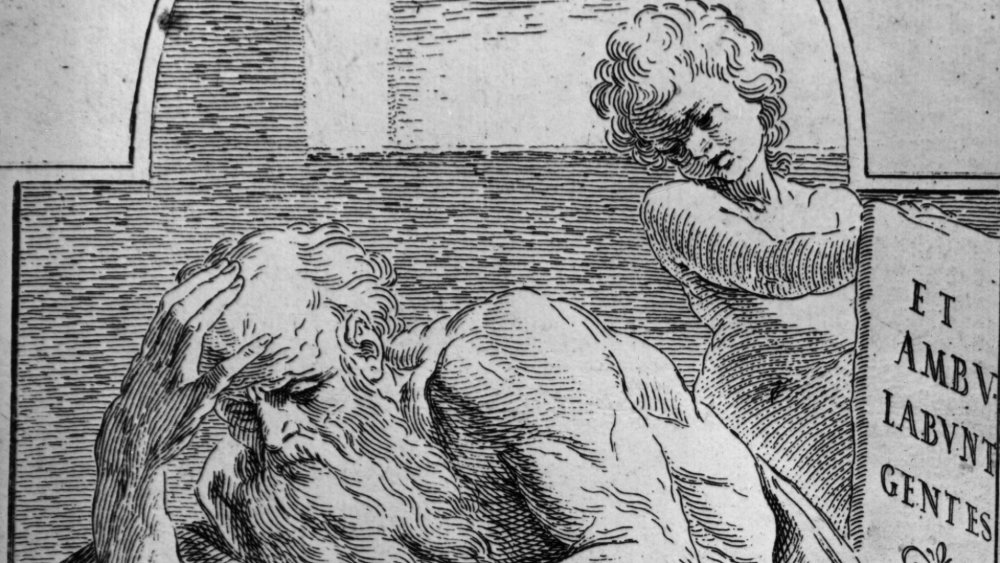Why Did People Live So Long In The Bible?
A human being currently living in the wealthiest nation in the world has an average lifespan of about 79 years. In contrast, the book of Genesis tells us that Methuselah lived to be 969. His grandson, Jared, was 962 when he died, and Noah's odometer hit 950 before he kicked the Antediluvian bucket. What was their secret? Was it Paleo? It was probably Paleo.
It was Paleo
Theologians have been wrestling with this biblical mystery for millennia: why did Old Testament folks live so gosh dang long while we, with all of our scientific advances, struggle to hit the single century mark?
There are several prominent theories. Blue Letter Bible sums up a few of them. There's the idea that Adam and Eve, Earth's original recipe humans, were created to live forever, and the salty sweetness of sinning diluted their immortality. It's also posited that back in the day, there were relatively few diseases eating away at people's precious insides. Maybe, it's speculated, a long lifespan was necessary if the human race was to properly populate a desolate planet.
And yes, it might have been Paleo. The idea that diet came into play has been floated, with fingers being pointed at people's modern-day willingness to eat foods that haven't been prepared in a manner up to Biblical snuff. Another thought is that the climate was significantly more forgiving before the Great Flood, and that the weather patterns and exposure to solar radiation on Earth got a damned sight more punishing after the cataclysm.
Alternately, a lot of the Bible is made up of folklore and allegory, people don't live much more than a century, and there are a lot of logistical issues with fitting two of every animal on the planet into a boat the size of 450 semi-truck trailers. But we're not here to be snotty. The nice thing about having a literal interpretation of the Bible is that nobody will ever rain on your parade to the same extreme that God already did.

